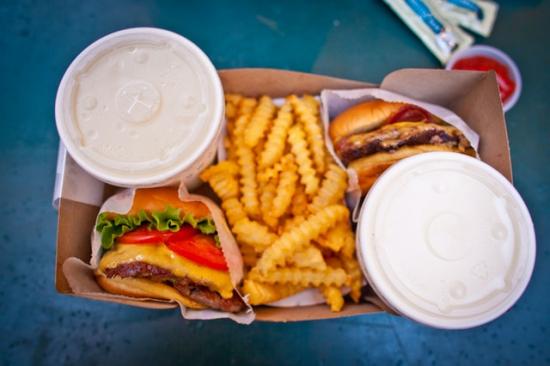
What does junk food have to do with COVID-19 deaths?
CDC cites high levels of obesity and diabetes in victims.
Each story is heartbreaking.
A five-year-old Michigan girl died on April 19 after being diagnosed with COVID-19. A 50-year-old bus driver, also from Michigan, died on April 1 from complications of the virus. And a 95-year-old Kansas woman who lived in a retirement community died on March 27.
With stunning speed, the novel coronavirus has killed more than 56,000 people living in the United States so far this year. Though most of the more than 1 million known to be infected do not become seriously ill (many do not even show symptoms) those who are hardest hit often suffer frighteningly rapid declines.
As scientists struggle to understand the overall magnitude of the virus and how to best address it, there are certain established truths that we can no longer afford to take for granted when it comes to protecting our health in the future.
One key truth: The quality of our food is essential to the quality of our health.
The food choices we make every day have a profound long-term impact on virtually every aspect of our well-being. And, as medical professionals track the pandemic, it is becoming increasingly clear just how much that matters in times like these.
Roughly half of the people who have been hospitalized with the new virus are obese, according to data from the Centers for Disease Control and Prevention. The CDC says those individuals who are obese are at “higher risk for severe illness” from COVID-19.
Obesity, scientists know, is a diet-driven condition that contributes to many other serious health problems. Being overweight is strongly linked to the development of type 2 diabetes, for instance. Thus it is not surprising that the CDC has found, along with the 48 percent of the COVID-19 victims who are obese, 28 percent of those hospitalized with the virus have diabetes.
The New York Times reported that young people who are obese are at particular risk and that overall obesity may be “one of the most important predictors of severe coronavirus illness.” That is no small matter in a nation where more than two-thirds of adults and nearly one-third of children and youth are obese.
The findings are particularly frightening for African-Americans and other people of color, who account for a disproportionate amount of obesity in the United States and are tragically proving to make up a disproportionate share of COVID-19 deaths.
As the casualties climb it is important to note that there are many complex factors fueling obesity in African-American communities. But some are easily addressed, such as the daily drumbeat of aggressive junk food marketing aimed at people of color.
University of San Diego professor Aarti Ivanic, who studies the intersection of race and food marketing, has found that many companies target their advertising of unhealthy fast food and junk food to Black and Hispanic populations while promoting more healthy food choices to affluent White consumers.
Her work is supported by a report released last year by the Council on Black Health and the University of Connecticut Rudd Center for Food Policy & Obesity that found restaurants, food, and beverage companies often target Black and Hispanic consumers for their least nutritious products, primarily fast-food, candy, sugary drinks, and snacks.
The American Medical Association has recognized the dangers of this targeted marketing and has warned that that junk food advertising is so detrimental to the health of all young people—Black and Hispanic youth in particular—that it should be sharply limited.







